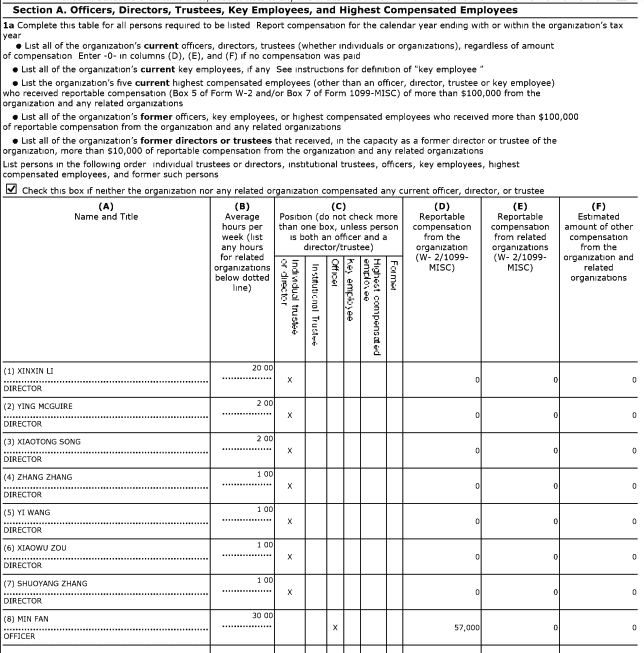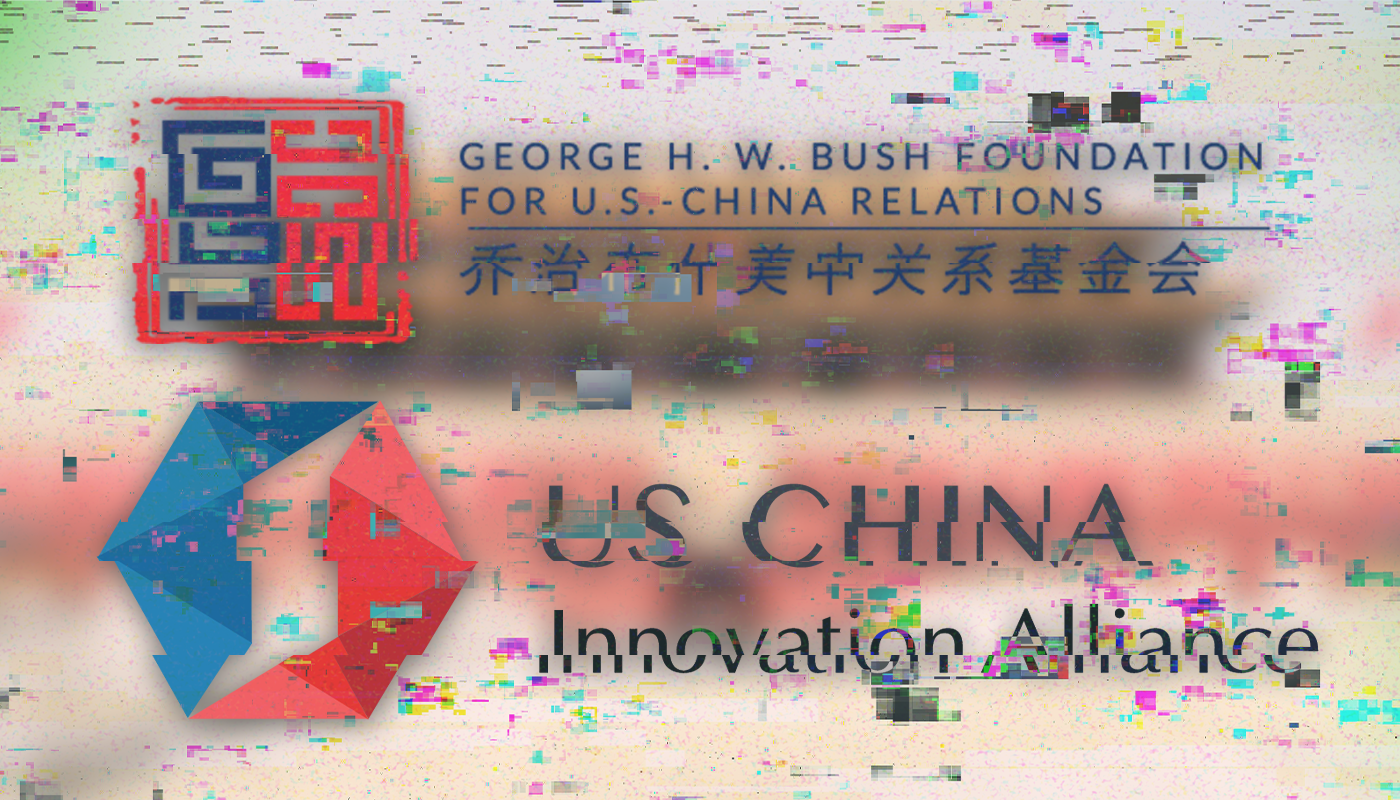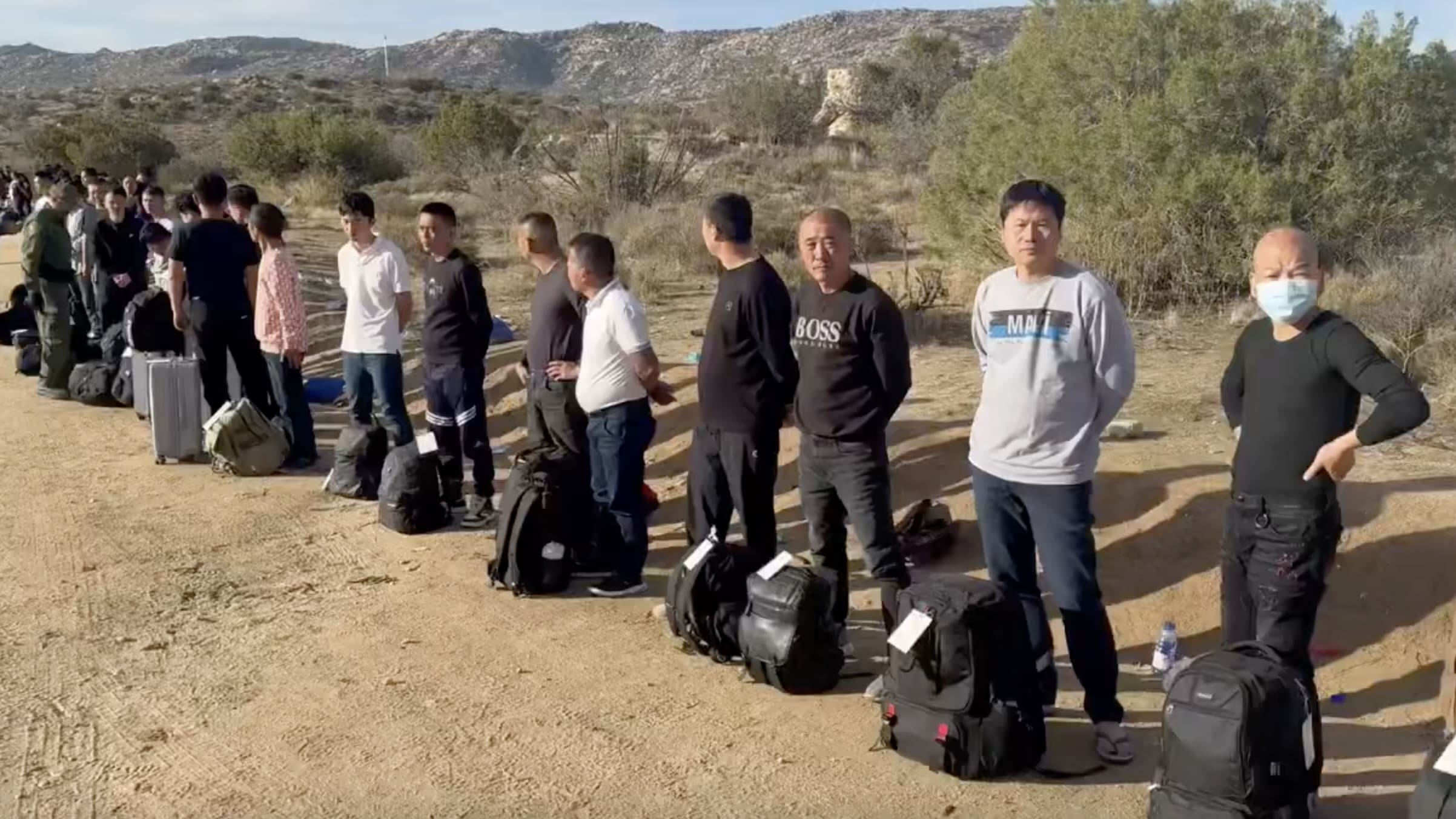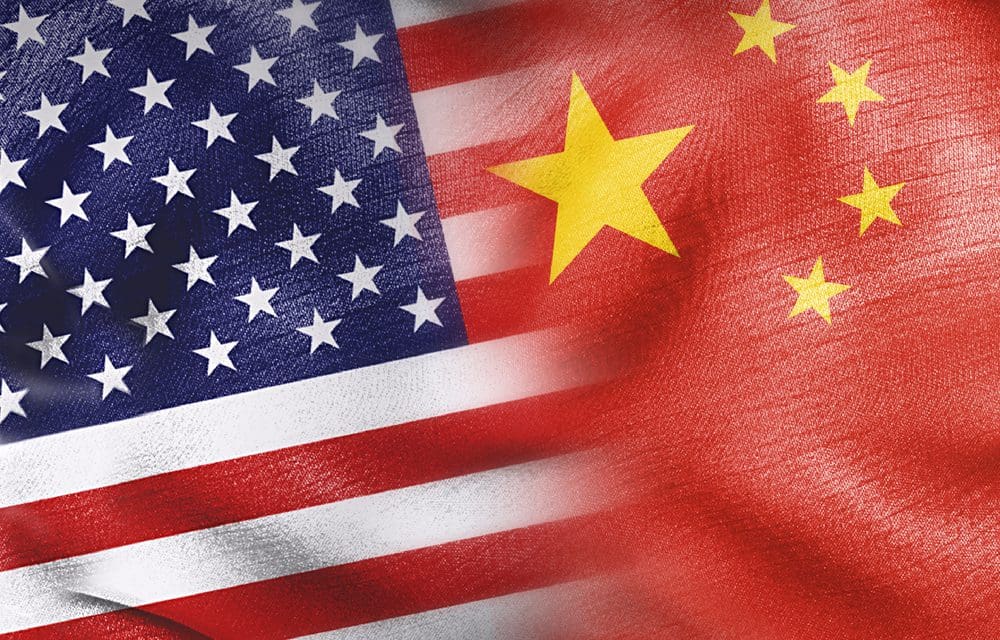In Texas Scorecard’s investigation of the Chinese Communist Party in the Lone Star State, we have uncovered their multi-pronged approach. Not only have they infested our state’s education apparatus, but are present in our land holdings and politics.
Actions of American presidents have also helped expose our state and nation to infiltration by the CCP.
As we will explore in the final phase of this series, they have also infiltrated our state’s commerce. But first, an examination of another CCP-connected actor influencing state politics, and their domestic partners.
The US China Innovation Alliance (UCIA)
UCIA has been a conduit for CCP infiltration into American and Texas commerce and government.
The non-profit co-hosted the 2019 US-China Innovation and Investment Summit in Houston, the fourth since 2016. Covered by China Daily, a propaganda arm of the CCP, this event brought in roughly 300 “officials, experts and business leaders from the United States and China.” David Firestein, president and CEO of the George H.W. Bush Foundation for U.S.-China Relations was among them. At the time, he was also reportedly executive director of the China Public Policy Foundation at the University of Texas Austin.
The entire purpose of the summit was to deepen economic ties between China and America. Its importance to Beijing was highlighted by the presence of the Chinese Consul General Li Qiangmin. The Chinese Consulate was also located in Houston, but was shut down in 2020 by the Trump Administration for allegations of espionage.
“The summit has special meaning of solving the problem for US small businesses to enter the Chinese market, as well as assisting the Chinese innovative companies to access the international market,” Qiangmin said.
During this summit, the City of Laredo expressed eagerness in deepening economic ties with the Communist-run country. “We believe that there are very big opportunities between China and Laredo, Texas and the United States,”said Olivia Varela, president and CEO of the Laredo Economic Development Corporation. “While there are issues that need to be addressed, we feel that collaboration is the way to really come through.” In 2017, China’s trade volume with the city reached more than $4 billion.
Such summits helped gain a reputation for UCIA. But today, if you attempt to go to their website, you’ll be redirected to a notification that the account has been suspended.
However, unless great effort is exerted, the internet is forever. This is thanks to archivist projects like “The WayBack Machine” which maintains archives of web pages. Multiple snapshots of UCIA’s website from April 2016 to April 2022 have been captured here.
One in March 2021 states UCIA is a “a non-profit 501(c)(3) tax-exempt organization that promotes innovation through the exchange of ideas and collaboration between the United States and China.”
We organize the U.S.-China Innovation and Investment Summit (UCIS) and InnoSTARS program, which provide a unique opportunity for innovative technology startups to connect with investors, strategic partners, leading incubators/accelerators, and professional services firms from China. Working with you, we can create more opportunities for your business using our bilingual teams and partners in the United States and China.
The non-profit has a Houston address on this archived version of its website. However, the organization’s address on filings with the Internal Revenue Service is in Austin.
The statement of program services and primary exempt purpose is as follows:
The organization provides education, resources and a support platform for ebtreneurs [sic] from high technology companies and Chinese investors enabling them to connect and work together despite the distance and cultural differences between China and the U.S.
According to IRS records, total revenues for UCIA in 2020, the latest year on file, were $193,279. With such a low level of funding, the group was able to file a 990 EZ form, which allows less transparency than a full 990 filing. The revenues in 2018 were high enough to trigger the filing of a 990 in 2019: $643,017.
Otherwise, all three filings reviewed (2018, 2019, 2020) contain roughly the same material.
In 2020, the directors of UCIA listed are Xinxin Li, Ying McGuire, Seth Williams, Angelos Angelou, Yusef Muhammad, Doreen Chin-Karayaka, Rong Shu, Mark Lavalle, Shautong Song, Wensheng Wu, John Zhang, Guocheng Wang, Hongxing Tan, and Qing Liu. None of them are recorded as having been paid.

Source: IRS
UCIA’s 2018 tax filing has a different, and smaller, list of directors. UCIA even had a paid employee, Min Fan, with a salary of $57,000 at the time. However, Ying McGuire remained as one of the few constants.

Source: IRS
At last report, UCIA’s acting chair of the board was McGuire, and at the time was also employed as vice president of the Technology Integration Group (TIG), headquartered in San Diego with offices worldwide, including one in Shanghai.
Her LinkedIn profile shows that since July 2021 she has become CEO/president of the National Minority Supplier Development Council (NMSDC). According to the organization’s mission statement, they “create connections between minority business enterprises (MBEs) and corporations, MBEs and the public sector, and MBEs and other MBEs, to help them benefit from each other, stoking entrepreneurship and growing wealth for these systemically excluded communities.” McGuire’s profile shows she’s working out of Austin, TX, while the NMSDC is headquartered in New York City.
She’s also on the Board of Advisors of the George H. W. Bush Foundation for U.S. China Relations. The Foundation’s website states they seek “to advance U.S.-China relations in ways that reflect the ethos, spirit and values of President George H. W. Bush.” Saved archives of the website found no mention of McGuire on the advisory board in April 2021.
A March 2020 archive shows a much more less developed website, and apparently smaller foundation, which is a stark difference from its modern, more developed, version.
McGuire told Texas Scorecard she resigned from UCIA after joining NMSDC. “When I took the position … I have to resign from other boards, because one I don’t have the bandwidth to do it, and [it was] no longer my priority. That organization probably dissolved after I left.”
She told us she served on an advisory board to former U.S. Secretary of Commerce Penny Pritzker. Pritzker, appointed in 2013 during the Obama administration, had an advisory group called the U.S. Investment Advisory Council. McGuire’s biography at the Bush Foundation states she was appointed by Pritzker to that council in 2016. “With that role I worked with a local economist, Angelo Angelou, and facilitated the first Texas Chinese Investment Summit.” Angelou was listed as a director on UCIA’s 2020 IRS filing.
Our research determined the first summit was held in 2015. McGuire said the summit’s purpose was to bring foreign investment from China into the U.S. and Texas. It was at the first event she encountered the organization that would become UCIA. Finding that they already had the infrastructure for operating, McGuire said her and her team felt UCIA should quarterback the event.
“We thought, okay, you’re already doing this, we’re not gonna do that, and we’re just going to help.” UCIA invited McGuire to sit on their board. When the UCIA chair later left the organization, they turned to her. “I said, I can be acting, I’m not going to be permanent.”
As we continued to investigate, we found significant ties between UCIA and the CCP.
Suspicious Ties
Hongxing Tan, one of the UCIA directors listed in their 2020 IRS filing, is CEO of Coway International TechTrans Co. Ltd. According to their website, this company was started by Tsinghua University in 2002, and was tasked with carrying out “the commercial operation of Tsinghua University International Technology Transfer Center.”
According to research from the Australian Strategic Policy Institute (ASPI), Tsinghua University is categorized as “very high risk for its high level of defence [sic] research and alleged involvement in cyber attacks.”
Regarding the Chinese military, ASPI has found “the university trains students for China’s nuclear weapons program, military and defence [sic] industry.” Tsinghua also “engages in a range of military research and was awarded secret-level security credentials for classified research in 2007.”
When it comes to cyber attacks, ASPI reports the university has been connected to cyber attacks against Tibetans, “major companies, and government institutions in Alaska, Kenya, Brazil and Mongolia.” They’re linked to surveillance too. Tsinghua joined hands with iFlytek, a voice recognition company, in 2006. In 2019, the company was put on the U.S. Government’s Entity List “as a company implicated in supporting human rights abuses in Xinjiang through its surveillance technologies.”
Last, but not least, it’s the alma mater of a number of CCP leaders, like the current president of China, Xi JInping.
The next UCIA director with CCP ties is Wensheng Wu, CEO at Great Wall Enterprise Institute. Founded in 1993, the Institute refers to itself as a “Private Think Tank,” and is headquartered in Beijing, with 14 offices across China, more than 400 “researchers and consultants,” and more than 3000 “experts.” They are involved in multiple fields, including energy, information technology, biomedicine, finance, education, and food packaging.
Great Wall admits it is involved in policy making. It states it is a, “renowned advisory agency for science, technology and innovation policy, making visionary contribution [sic] widely acknowledged by both public and private sectors to the enhancement of innovation and entrepreneurship, the development of industries and cities, and the growth of the economy.”
The Institute’s description continues that it is, “contributing to economic growth and urban development with first-class expertise in industry development patterns and tools supporting decisions of policy makers.”
Furthermore, it was widely reported in 2017 how Great Wall and China’s Ministry of Science and Technology worked together to produce a report on “young, unlisted companies with a market value of over $1 billion” in the country.
Finally, there is McGuire. According to her LinkedIn profile, she attended Nankai University. ASPI ranked it as low risk due to its “limited involvement in defence [sic] research and collaboration,” but it does have “secret-level security credentials.” Nankai is supervised by China’s Ministry of Education, and was picked as a “world class” university in the government’s “Double First Class University Plan—a plan that seeks to improve the global standing of China’s elite universities.”
McGuire addressed her time at Nankai. “I was there 1983 [to] 1987, so it was a long time ago,” she told Texas Scorecard. “I was not aware of the political risk and all of the ratings, etcetera, and so no comment there.”
We also asked McGuire about the three other directors, and made her aware of the ties we discovered. She said she didn’t have any comments about Tan. “We have a CEO who was leading [the] effort, and we had a board meeting every so often, and I don’t remember we have that person on our board.”
When it came to Wu, McGuire said she was aware of his company, Great Wall Institute. “It was explained to me [that] they’re like Accenture of China,” she said. “Grade Wall is associated with the UCIA.” We asked her for a comment about Wu. “I literally have to see the face and the Chinese character to know if I know the person,” she replied. “I am terrible with the name, especially [since] it’s pronunciation driven.”
UCIA’s tax filing for the 2020 tax year shows that McGuire, Tan, and Wu were all “directors” that year.
We asked McGuire for a comment about the CCP, considering its oppression of Chinese minorities, other religions, and their hostility toward Taiwan and the United States. “I’d rather stay out of politics and focus on business,” she replied. “When I go to DC one night, I told legislators, number one, separate Chinese government from China and the Chinese people … When we associate a government, Communist Party with China and Chinese people, that’s when our kids, our grandkids, our community get attacked.”
We followed up by pointing McGuire to Chinese refugee Bob Fu, president of ChinaAid, who escaped religious persecution in China. He criticizes the CCP, while appealing for all to help the Chinese people. Again, she refused to criticize the CCP. “I’m not aware of him. Sorry, probably when I see [his] Chinese name I [will] recognize [him]. But I think, we need to separate the Chinese government from China and that word China and then Chinese people, and that way you solve a problem without dragging in the whole population.”
During our investigation, we also found money connections from those connected with the UCIA into Texas politics.
Curious Cash Flows
Research conducted on Transparency USA revealed the following money connections.
First is Mark Lavalle, a member of the UCIA Board of Directors in 2020. Transparency USA reports he is a CPA with KPMG, a multinational company that provides tax, auditing, and business advisory services. KPMG has offices across the United States, Europe, and China.
According to LaValle’s resume on LinkedIn, he worked as a Seconded Partner for KPMG in Shanghai from 2007 to 2014, then worked as a Partner in their Houston office from August 2014 to November 2021. His resume currently states he is now a Principal at KPMG’s Singapore office. Before joining KPMG, he was employed at disgraced and failed accounting firm Arthur Andersen.
Records show that this year LaValle donated $2,000 to the Robert “Beto” O’Rourke campaign for governor. He donated the same amount to ActBlue Texas, a non-profit company that provides fundraising services to Democrat candidates. But that’s not all. From 2017 to 2021, LaValle donated a total of $1,800 to State Rep. Gene Wu (D–Houston).
In a weird twist, concerning someone from UCIA and a legislator, we found money flowing in the opposite direction.
From 2018 to December 2021, State Rep. Ina Minjarez (D–San Antonio) paid Ying McGuire a grand total of $34,000.
We dived deeper into these payments. A $2,000 December 24, 2018 payment to McGuire is described as a “2nd Partial Payment of Deposit and 1st Partial Payment($3k)apartment Rent in Austin for Session.” A $1,500 January 31, 2019 payment is described as a “Monthly Residence Expense for Housing in Austin During Session.” These payments continued. A $1,500 May 2, 2019 payment is described as a “Second Part of May Rent for Austin Residence for Session.”
McGuire told us that Minjarez was a tenant of hers “three different times” during the state legislative sessions. “Ina came just answering real estate posting … her chief of staff reached out,” McGuire said. “Two years later, the next session, they contacted me again. It was like answering a real estate ad.”
Records of payments stop until November 6, 2020, where Minjarez paid McGuire $1,500 as a “2nd Payment for Condo Deposit for Residence in Austin During Session 2021.” These payments continue until June 30, 2021.
McGuire described Minjarez as an “acquaintance.” She later said they had “maybe one or two lunch[es] with her, and I may make very small donation to her.” Multiple searches of Transparency USA failed to find any records of donations under the name Ying McGuire.
We asked McGuire if she had relationships with other members of the Texas Legislature. “Nothing like personal friendship relationship. It’s more, I’ve been in Austin for a long time, and I co-founded the Asian Chamber of Commerce, so I’m kind of known in the community. When people have fundraising, they will pull me in,” she replied. “I can’t honestly recall who I contribute to. But no one [do I] have like a close relationship with, except Ina [Minjarez] is like a tenant. So I go [to] lunch with her and a few things.”
We asked McGuire if she and Minjarez ever discussed policy. She said no. “We really didn’t talk much [about] anything substantial,” she said. “It’s just a normal lunch with my tenant who’s a state representative.”
It’s important to note that, during the 2021 session of the Texas Legislature, Speaker of the House Dade Phelan (R) assigned Minjarez to be the vice chair of the Appropriations Committee, and vice chair of the Appropriations Subcommittee on Strategic Fiscal Review and Federal Relief Funds. She was also assigned to the Appropriations Subcommittee on Article III (Public and Higher Education), Redistricting, and Urban Affairs.
Last November, Minjarez announced she would not be running for re-election to the Texas House. Instead, she ran in the Democratic primary for Bexar County judge. She lost that contest this May.
Texas Scorecard made multiple attempts to contact Minjarez’ office about this issue, make her aware of McGuire’s connections, and give her an opportunity to comment. We received no response before publication.
We sent open records requests for communications between Minjarez and McGuire. Our first request sought communications from December 2018 to May 2019. Minjarez’ office replied they had “no records responsive” to our request. We also requested communications from November 2020 to June 2021. Again, Minjarez’ office said they had “no records responsive.”
But Minjarez isn’t McGuire’s only political connection.
Let’s Talk About Bush
McGuire is on the advisory board of the George H. W. Bush Foundation for U.S. China Relations. Angelos Angelou, who as late as 2021 was listed on the Board of Directors of UCIA, is also on the Bush Foundation’s Board of Advisors.
We found another concerning tie to the CCP. On the Foundation’s Board of Directors is a Miss Florence Fang. Her biography states she is “an honorary trustee at Peking University and an honorary professor at Wuhan University.”
The Australian Strategic Policy Institute (ASPI) found major concerns with both.
Wuhan University, a “leading Chinese university subordinate to the Ministry of Education,” has been designated as “very high risk for its alleged involvement in cyber espionage and high level of defence [sic] research.” It is close with the CCP military, and does military research in a wide array of fields, including “cyber security, and explosions.” ASPI also states “there are strong indications that WHU has carried out cyber attacks for the People’s Liberation Army,” and reports a claim that its cyber warfare unit “is part of the Sixth Bureau of the former General Staff Department Third Department, the PLA’s signal intelligence service.”
ASPI found Peking University is not much better. “Peking University (PKU) is designated high risk for its involvement in defence [sic] research and links to China’s nuclear weapons program.” In addition to its military work and ties, ASPI reports the “university has an office devoted to the secure handling of classified information, hosting regular meetings and training sessions to strengthen the university’s security culture. In 2006, the university received security credentials for participation in classified defence [sic] research.”
Such close and concerning associations to CCP-adjacent or controlled operations seems to flow from the top at the Bush Foundation. The founder and board chairman is Neil Bush. The third son of former President George H. W. Bush, brother to former President George W. Bush, and failed presidential candidate Jeb Bush, Neil’s biography boasts of deep ties to China.
He has traveled there more than 140 times since 1975 and has visited more than 40 cities. He is co-chairman of CIIC, a real estate development company headquartered in Beijing, and is on the board of directors of the Hong Kong Finance Investment Holding Group.
He’s also shown up repeatedly in this article series. He was present at the fourth U.S.-China Innovation Summit held in Houston in 2019. He was also at the 50th anniversary of the U.S.-China Ping Pong Diplomacy in 2021, also held in Houston.
Further reading finds Neil Bush was following in his dad’s footsteps. His biography states he first went to China in 1975 during his dad’s appointment as chief liaison officer for the U.S. to China. He was sent the prior year by then-President Richard Nixon (R).
One could argue Nixon started the ball rolling toward openness with the CCP-government, which was not a position he always held. When vice president under President Dwight Eisenhower (R), Nixon towed the party line of American opposition. This changed in 1967, two years before becoming president and during the Vietnam War. Nixon wrote in an article that America “simply cannot afford to leave China forever outside the family of nations, there to nurture its fantasies, cherish its hates, and threaten its neighbors.” Former President Jimmy Carter (D) continued this trend by creating full diplomatic relations with the Communist government.
Even though H.W. Bush’s time in China ended in 1975, his connection did not.
In 1977, he went to Tibet. During this trip he befriended Yang Jiechi, who became China’s ambassador to Washington during the first term of President George W. Bush. Yang, 72, is currently on the Politburo and is “director of the general office of the Central Foreign Affairs Commission (CFAC).” Before this, he was foreign minister and state councilor. Nikkei Asia refers to Yang as a practitioner of “wolf warrior diplomacy,” meaning “responding aggressively when foreigners criticized Beijing.” Yang is expected to retire this year, replaced by younger and more aggressive diplomats.
It’s clear H. W. Bush’s trip to China had an effect that colored his foreign policy decisions when he was elected president. After the CCP’s tyrannical actions against citizens protesting in Tiananmen Square in 1989, it was widely reported that then-President Bush led the outraged Western world to dampen down their anger and extend the hand of friendship to the tyrannical government.
As late as 2014, it was widely reported the elder Bush sent a welcome letter to the new Consul General at China’s Consulate in Houston: Li Qiangmin. “We welcome you to our hometown and I look forward to meeting you this fall,” Bush wrote.
Son George W. Bush (R) followed his dad’s example. In December 2001, months after the 9/11 terrorist attacks, which escalated national security as the top concern, he granted “permanent normal trading relations” to China. He also ended application of the Jackson-Vanick provisions, which the Wilson Center states denies “permanent normal trading relations to non- market economies that restricted emigration rights.”
And now, through political actors like the Bush family, CCP-connected operators have gained access to our state.
In Part 4, we will examine a state representative with concerning ties to the Chinese Communist Party.







